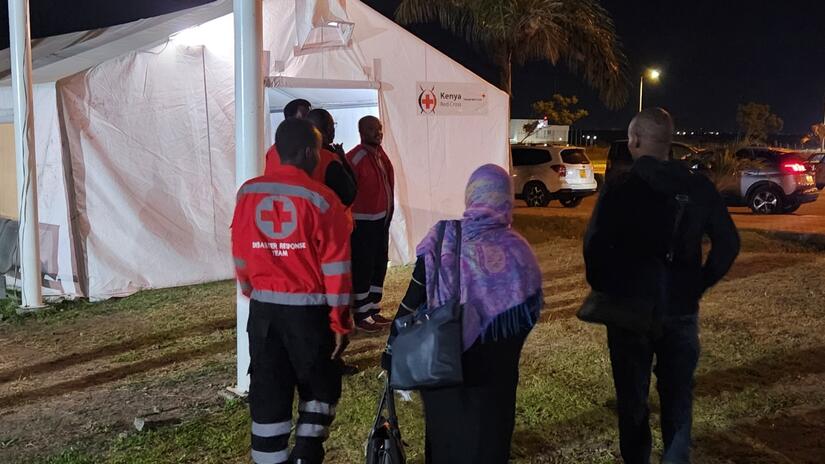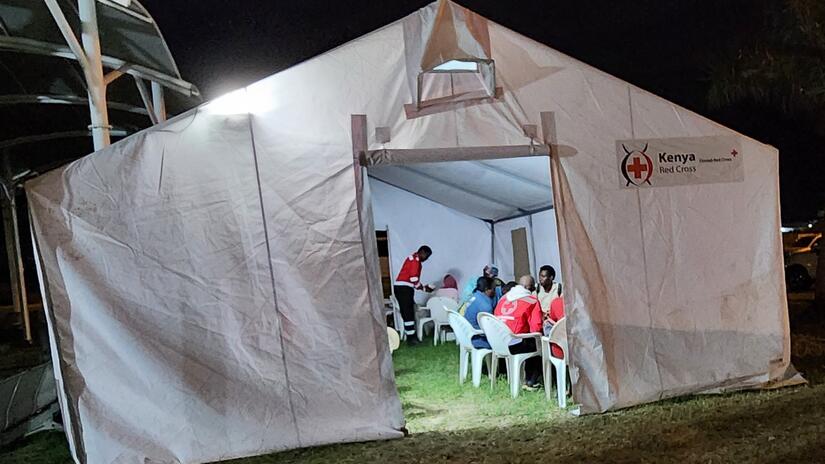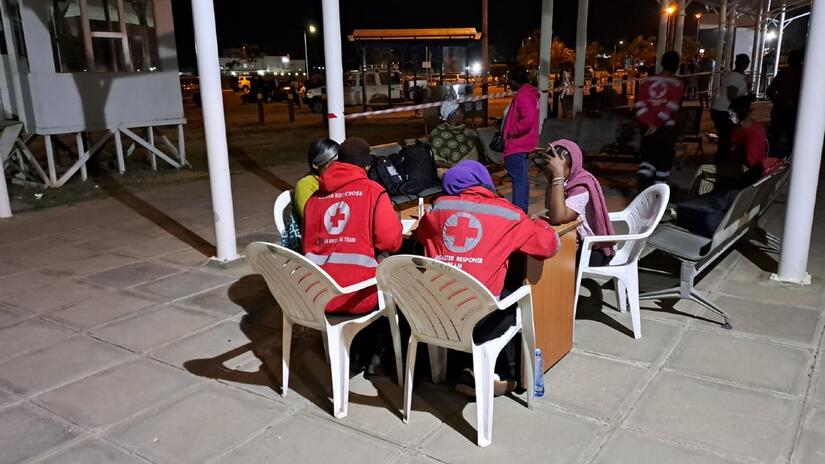“I heard the bullets outside when I was cleaning. My boss told me the war had started.”
These are the words of Theresa*, a young woman from Kenya who bravely agreed to share her story with me about fleeing the conflict in Sudan. Feeling afraid for her safety, she asked me to not publish her photo.
Theresa had just started working as a domestic worker with five other young women in a large home in Sudan’s capital, Khartoum, when the fighting broke out.
“I was new in Sudan. My bosses left for Egypt and I stayed with five girls and three security. The electricity went off, there was no water, it was too hot.”
She says thieves came into the house, tied up their security and started looking for her and her fellow workers.
“We went and hid upstairs at the top of the house where there was a water tank. The thieves broke the doors, took gold, money, everything in the house. Even my passport.”
“They came upstairs and looked around. We had left a phone and kettle of tea and they said ‘the girls are around and have taken their tea here’.”
“I was inside the water tank. They shot bullets so we would come out, but we didn’t. We kept quiet in that tank of water until they ran away.”
Theresa and her fellow workers fled the house several days later when another group of men came and moved into it.
“I left everything in that house. The road was not safe. The bombs were everywhere. They were shooting, I didn’t care [if I died]. […] I came to my embassy. I stayed there then they brought me to Kenya.”
Theresa is just one of 44 people I met in Nairobi airport who’d managed to get evacuated to safety from the conflict in Sudan.
They drifted through the airport gates in small pairs and groups, collapsing onto chairs that volunteers from the Kenya Red Cross (KRC) had set out for them. “Karibu, you’re welcome” were among the first words they heard.

A man and woman who fled conflict in Sudan are guided towards a tent run by the Kenya Red Cross in Nairobi where they can access mental health support.
Photo: IFRC/Susan Cullinan
The group was made up of mostly women – their evacuation prioritized due to the increased risk of sexual and gender-based violence. They had come from different countries and had all been in Sudan to work or study.
Social worker and Kenya Red Cross volunteer, Alexina, tells me most of the women and some of the men she’s helped have survived sexual violence. She’s welcomed numerous groups now, and stories like Theresa’s are shockingly similar. People have often fled in a hurry, or their possessions have been stolen en route, meaning they typically have no passports, money or belongings by the time they reach Nairobi.
When they arrive, evacuees first register with Kenya Red Cross volunteers who take their details to help reconnect them with their loved ones. They’re then led to a tent where they can have quiet conversations with trained mental health workers.

Kenya Red Cross volunteers sit with newly arrived evacuees from Sudan to offer them mental health support and listen to their experiences and feelings about fleeing the conflict.
Photo: IFRC/Susan Cullinan
Inside the tent, volunteers, including psychologists and a social worker, sit with small circles of evacuees who share their stories of what they’ve been through. This early psychosocial support gives people who’ve been through traumatic situations a chance to start to process what’s happened.
Next is a police table to help them with ID documentation. Then there’s a comfortable welcoming area where people enjoy food and drinks, and a first aid station with medical and hygiene supplies. People can access free phone services, and the Kenya Red Cross runs a bus service to transfer people to free accommodation.
“I’m very happy to be back in Kenya now […] When they were looking for me and I was inside the water tank, I thought that was my day to die,” says Theresa.
After recounting her story, Theresa looks numb and exhausted. I struggle to find adequate words as we say goodbye. She climbs, carrying her one bag, into one of the buses, and I think about what I should have said: “I’m in awe at your resilience, Theresa.”
--
An estimated nine million people have been affected by the conflict in Sudan. Some 1.2 million people have been displaced internally and nearly half a million people have fled to neighbouring countries.
The IFRC has launched two Emergency Appeals in response to this crisis: one to support the Sudanese Red Crescent Society to help people inside Sudan, and another to support National Societies in six neighbouring countries welcoming people fleeing the conflict.
To help people like Theresa, please donate to our appeals by following the links above.
--
*Name has been changed to protect her identity.






